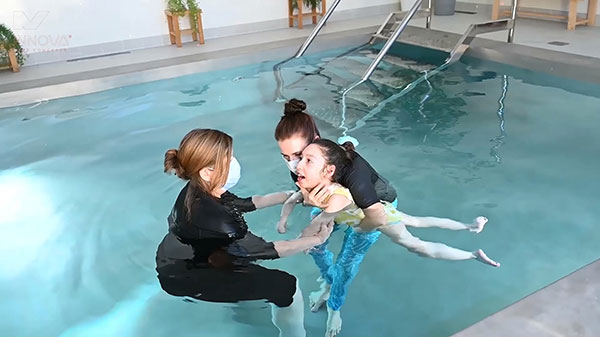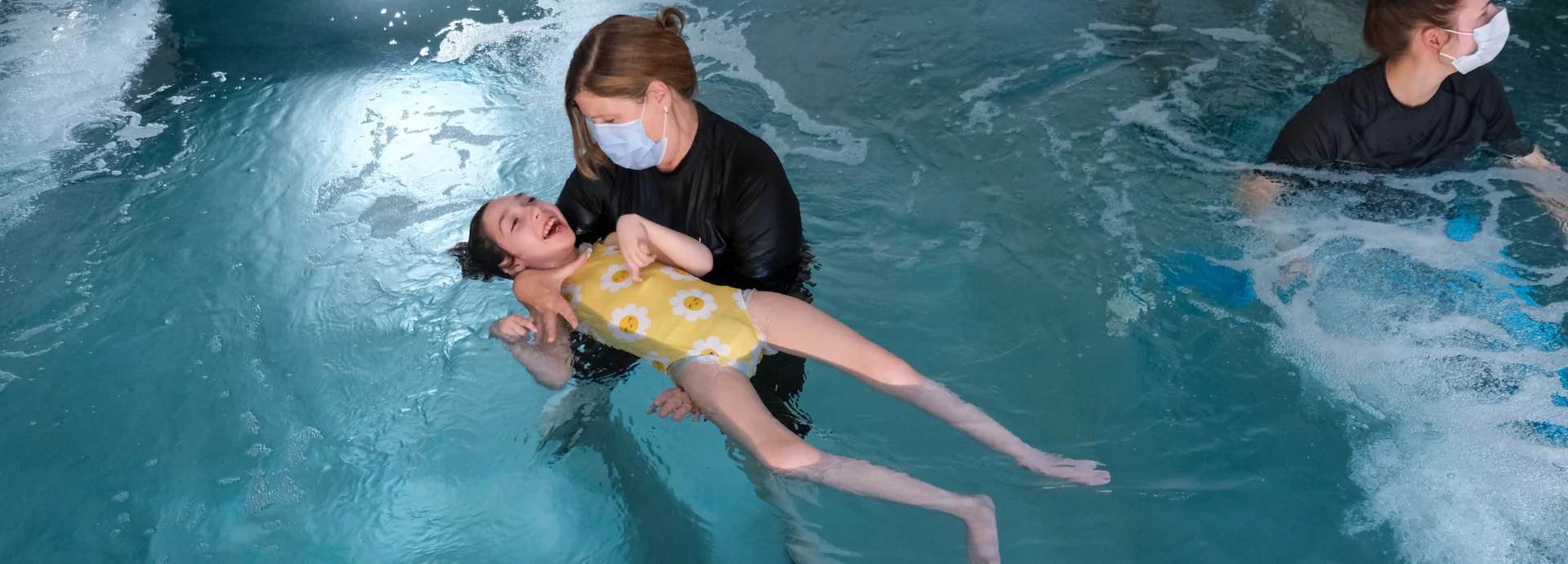For families and individuals involved in medical legal proceedings, pulling together a home hydrotherapy justification report can be tricky.
In recent years, hydrotherapy or aquatic physiotherapy has gained recognition as an effective method for enhancing physical and mental well-being in individuals with various medical conditions.
For case managers and families dealing with a medical negligence case, the option of having a hydrotherapy pool installed at home can be a game-changer in terms of rehabilitation and overall quality of life.
However, for many families and care professionals, putting together a justification report to support a claim for a home hydrotherapy pool can be a difficult process.
To help make that easier, we’ve looked at five key factors that can help build a strong home hydrotherapy justification report.
Jump Straight To –
- Past Advice and Use for Hydrotherapy Cases
- Evidence of Past Benefit
- Future Benefit
- Public Hydrotherapy Facility Availability
- Relative Cost Analysis

Past Advice and Use for Home Hydrotherapy Justification Cases
One of the first factors to consider when putting together a home hydrotherapy justification case is the past advice that has been given, as well as previous experiences of using aquatic physiotherapy or swimming. It is essential to demonstrate that there has been evidence of occupational therapists and physiotherapists recommending hydrotherapy for the claimant’s physical and psychological benefit.
This recommendation holds more weight when there is a documented history of the claimant actively participating in hydrotherapy. A deputy for a medical negligence case needs to see that aquatic physiotherapy has been specified as a therapy that will either aid rehabilitation, help with mobility or enhance quality of life.
In regards to past usage, this helps demonstrate a genuine need, where the claimant and their family/care team can build a case evidence of how hydrotherapy supports their needs, helping to strengthen the case for a home installation.
Evidence of Past Benefit
An important factor in putting together a home hydrotherapy justification report is the presence of tangible evidence showcasing the benefits of hydrotherapy for the claimant. Medical records and testimonials from occupational therapists, physiotherapists and healthcare professionals can provide concrete proof of how hydrotherapy has positively impacted the claimant’s physical and psychological health.

Having evidence that individuals have shown progress from hydrotherapy is crucial for a home hydrotherapy justification report.
Documented improvements in mobility, pain management, and mental well-being can be instrumental in substantiating the need for a home hydrotherapy pool. This can be taken in the form of videos and written accounts. We’ve seen in previous claims for a home hydrotherapy case that having this clear evidence can play a major role in determining the success of a claim outcome.
Future Benefit
With any medical negligence cases involving home hydrotherapy justification, it is important to note that it can’t be solely based on past experiences. By working with occupational therapists and physiotherapists, a claimant’s future health needs will also be looked at and mapped out. In doing so, the potential future benefits of hydrotherapy need to be analysed.
Case managers will consider whether hydrotherapy or swimming will continue to be beneficial for the claimant in the long-term. That can include supporting an existing condition or help with any changes as the claimant gets older.
It is also important to consider the claimant’s ability to access public facilities in the future. In this case, the individual in question may have a condition that currently allows them to travel to a nearby facility.

However, this could change long-term depending on the condition. Case managers need to assess whether a home hydrotherapy pool will be a more effective option in the future if the claimant is no longer able to travel to a public facility.
Public Hydrotherapy Facility Availability
A major obstacle for many families who require hydrotherapy is access to a public facility. As discussed in our blog, ‘Improving Access to Aquatic Physiotherapy at Home’, demand for aquatic physiotherapy is rising, yet the accessibility to local hydrotherapy facilities is often limited. There is a common problem of distance, with families often having to travel between 20 to 100 miles to access their nearest public hydro pool.
Case managers handling a medical negligence case have to take these issues into account, as well as other problems such as pools having limited opening hours, or not having the right type of equipment to facilitate a hydrotherapy session.
Having regular access to a hydrotherapy pool outside the claimant’s home plays a pivotal role in deciding whether a home pool installation can be justified. It’s essential to demonstrate that suitable hydrotherapy facilities are not easily accessible or available to the claimant in their area.
This involves researching nearby facilities, their capacity, and their accessibility for individuals with the claimant’s specific medical condition. If these options are limited or inconvenient, it strengthens a home hydrotherapy case.
Relative Cost Analysis For Home Hydrotherapy Justification
The final factor to consider when advocating for a home hydrotherapy pool is the relative cost. When you consider that the average cost for a half-hour session at a privately-owned hydro pool is £75, it can be a very expensive therapy for families to access on a regular basis. Those involved in a medical negligence case will take this into consideration when putting in an application for a claimant to access hydrotherapy at home.

So how is this used in a home hydrotherapy justification report? Well, a comparison of the expenses associated with using out-of-home hydrotherapy facilities with the installation and running costs of a home pool will be generated.
While the initial investment in a home pool may seem substantial, it’s essential to weigh this against the ongoing expenses and logistical challenges of traveling to external facilities. A cost-benefit analysis can provide a clear financial rationale for home hydrotherapy.
As discussed in our hydrotherapy webinar, ‘Enhancing Quality Of Life: Rehabilitation Benefits, Litigation Submission, Design & Build Stages & Installation’, there can be huge savings long-term of installing a hydro pool at home as opposed to accessing a public facility on a weekly basis.
Summary
Building a strong home hydrotherapy justification for a medical negligence claim requires a detailed assessment. Past advice and use, evidence of past benefit, future potential, out-of-home pool availability, and a relative cost analysis are key in creating a compelling argument.
By working with specialists like Innova and presenting a well-documented hydrotherapy case, case managers and families can improve their chances of securing the installation of a home pool.

